16 ways to save your garden from very heavy rain
An amber warning has been issued over Storm Ciaran – so what can we do to save our gardens from rain damage?
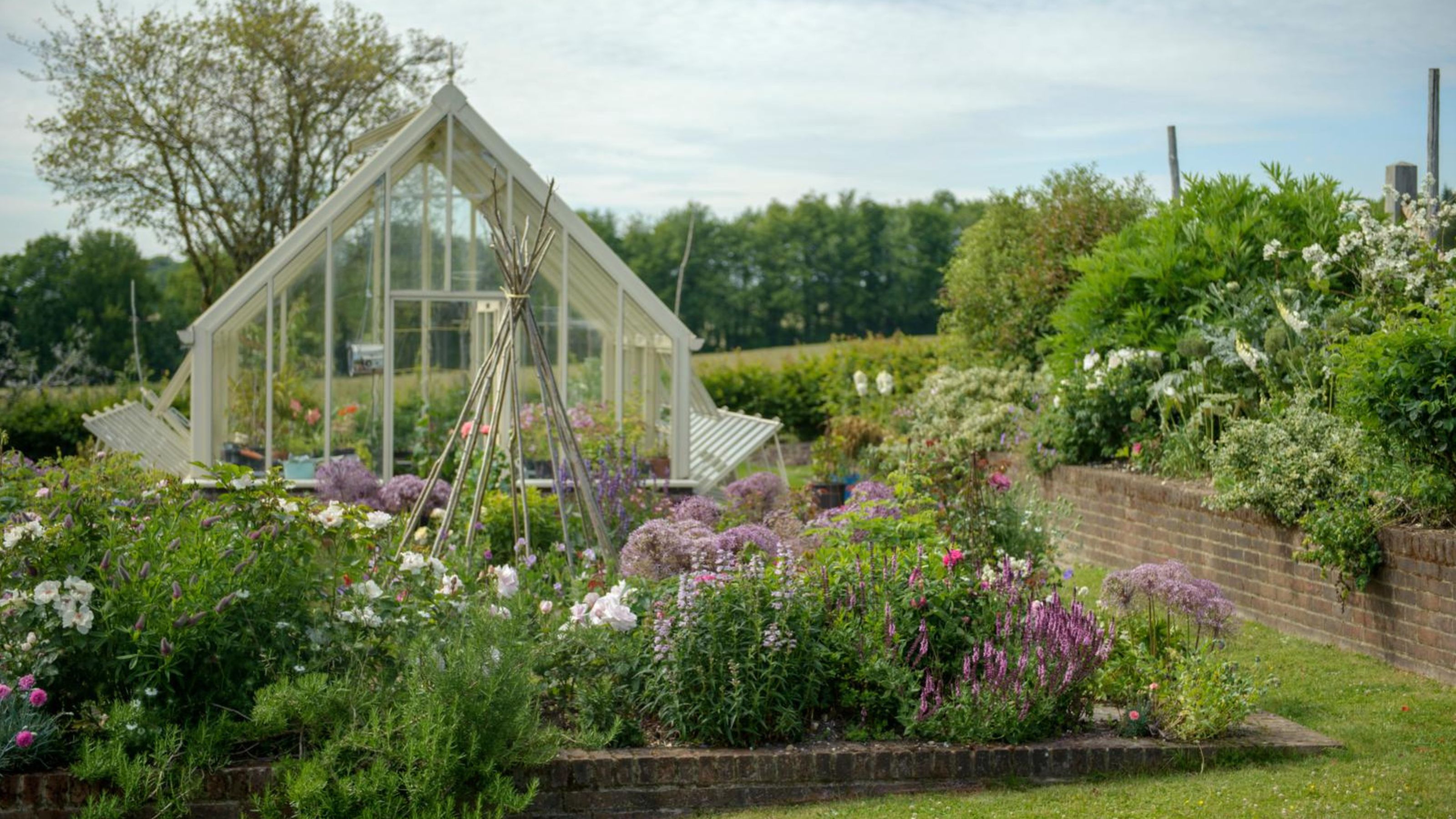

If you're wondering how to save your garden from very heavy rain, you aren't alone: after all, Met Office meteorologists have warned that Storm Ciaran will bring with it some 60mm of rainfall.
Throw in the fact that the Environment Agency has also issued 72 flood warnings, and you have a recipe for an incredibly waterlogged backyard – which means we're putting all of our garden ideas on hold for the time being.
Grab your rain chains, then, people: it's time to start some serious damage control...
How to save your garden from very heavy rain
While heavy rainfall is undoubtedly better for our gardens than scorching hot temperatures, there are still more than a few things we need to do to protect our boggy garden borders and flooded lawns.
Why? Well, because it is always harder to salvage an overwatered plant than an underwatered one, and we don't have much time.
With that in mind, then...
1. Assess the situation
It is important to 'assess the garden's condition to identify the extent of damage caused by heavy rainfall,' says Morris Hankinson, founder and managing director at Hopes Grove Nurseries.
Get the Ideal Home Newsletter
Sign up to our newsletter for style and decor inspiration, house makeovers, project advice and more.


Morris Hankinson is the founder and managing director of Hopes Grove Nurseries Ltd, the UK’s only specialist grower-retailer of hedging plants., which he established after graduating with a Commercial Horticulture Degree from Writtle College, Essex in 1992 The business grows hedging plants across three nursery sites in the beautiful Weald of Kent totalling 130 acres, employing 20 full-time local staff, and serving over 17000 customers each year.
To do this with a gardener's keen eye, Morris advises that you 'look for signs of waterlogging, erosion, damaged plants, and standing water.'
Cover over any newly-exposed roots with fresh soil or compost, and try to make the most of the soft soil and tackle any new weeds before they choke your plants.
2. Improve the garden's drainage system
How to save your garden from very heavy rain? Well, to prevent waterlogging, it is important to improve the garden's drainage system.
'Ensure that gutters are clear,' says Morris, 'and create gentle slopes to direct water away from sensitive areas.'
It's also worth thinking about 'reducing hard surfaces to allow rainwater to drain away in the garden,' says Chris Bonnett, founder of GardeningExpress.co.uk.
'Hard landscaping has a place in our gardens, but make sure you have grassed areas, flower beds and vegetable patches to soak up the rain.'
3. Aerate the soil
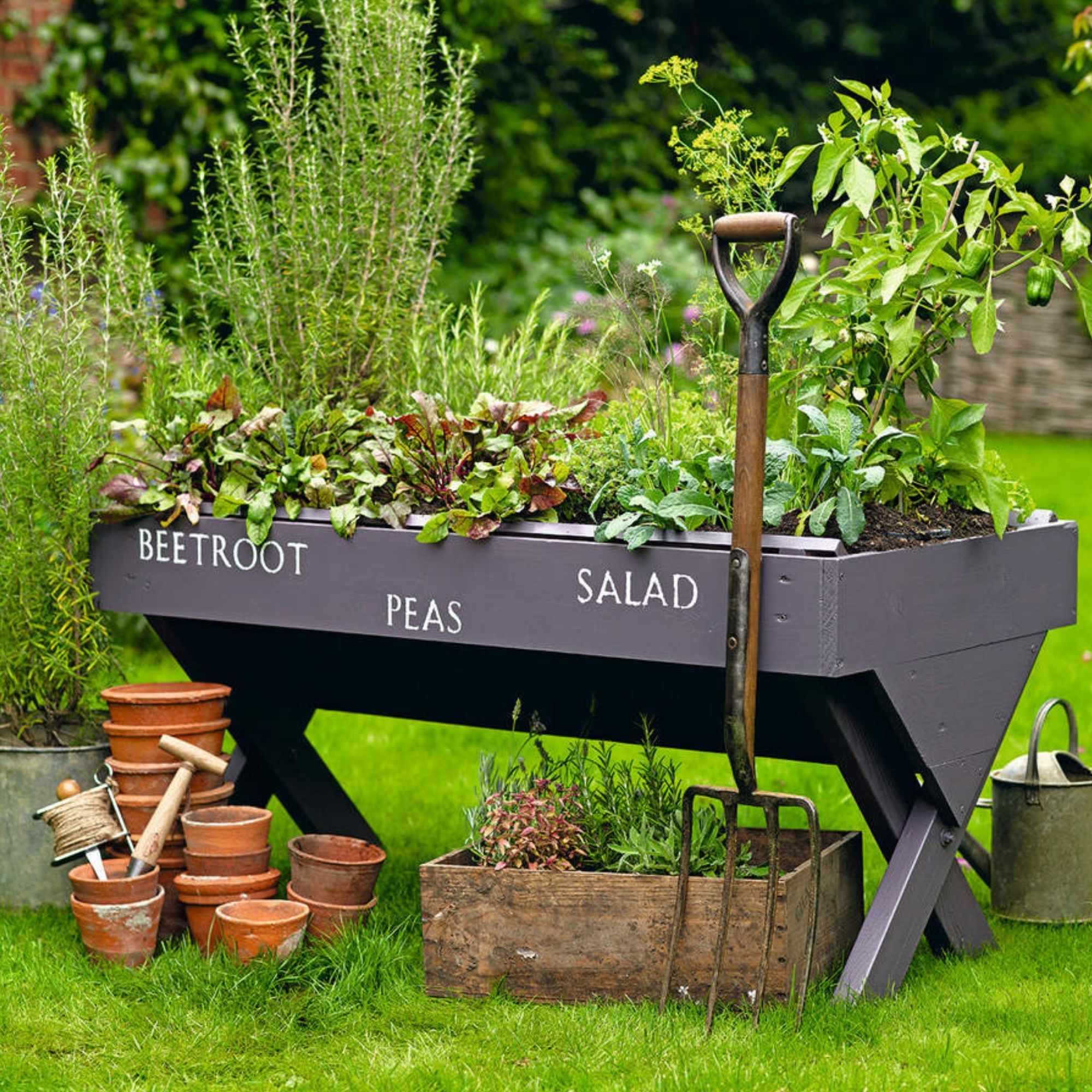
Don't leave your soil sitting their looking boggy and sodden: instead, grab a garden fork and set to work.
'Compacted soil from heavy rain can suffocate plant roots and hinder water absorption,' says Morris. 'Make sure you aerate the soil by using a garden fork or similar to improve airflow and water penetration.'
4. Boost the quality of your soil
It's always a good idea to incorporate organic matter like compost or well-rotted manure into the soil, especially if you're looking for ideas on how to save your garden from very heavy rain.
'Improving your soil will improve drainage so dig in plenty of organic matter to get it in top condition,' says Chris.
Mulch, too, 'helps regulate soil moisture levels by reducing evaporation and preventing excessive water absorption,' adds Morris.
'Apply a layer of organic mulch around plants, but avoid piling it against stems to prevent rot.'
5. Check in on your potted plants
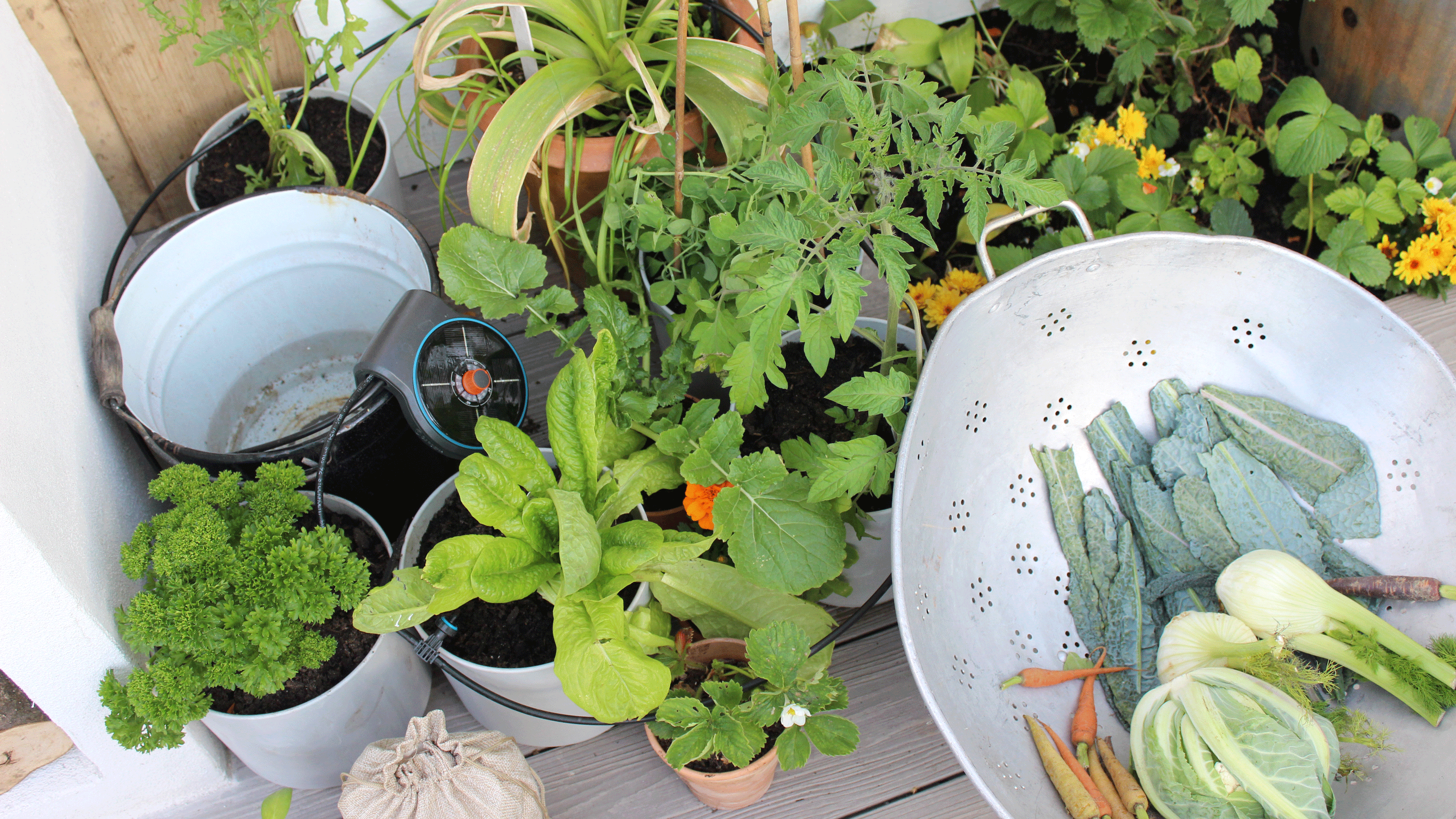
Always be sure to move your plants in pots and containers underneath some shelter if heavy rain is scheduled.
'Pot feet can be used to elevate pots to improve drainage so that they are not sitting in water for too long,' adds Chris, who also advises digging some organic matter into the soil of your container plants to keep them from getting too boggy.
6. Deal with standing water
When it comes to figuring out how to save your garden from very heavy rain, remember that, if there are areas with standing water, try to remove it using buckets or pumps.
'Standing water can lead to root rot and attract pests, so it's essential to eliminate it as soon as possible,' says Morris.
You can, of course, repurpose this rainwater around your home: a rainy summer is actually a good thing for your houseplants!
7. Start rain harvesting
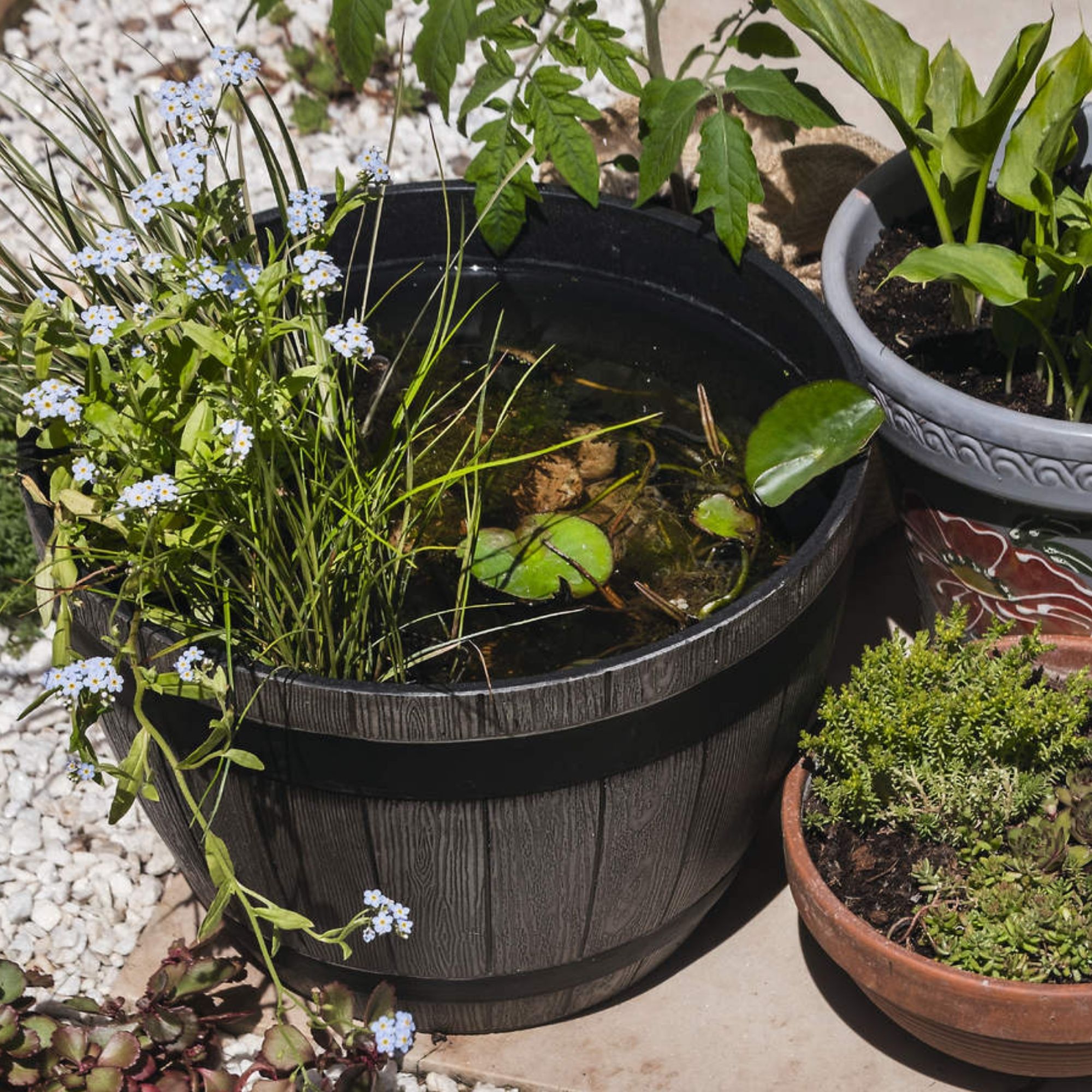
Rain harvesting is going to become more and more important for gardeners as this erratic weather continues, so it's important to start now.
'Collect rainwater by installing a water butt, rain barrel, or rain chain,' says Chris.
'When we do have water restrictions in place, you should have enough to keep your garden looking good.'
8. Check for pests and diseases
When sussing out how to save your garden from very heavy rain, don't forget that excessive moisture can create favourable conditions for pests and diseases.
'Regularly inspect your plants for any signs of infestations or infections, and take appropriate measures if needed,' says Morris.
Keep an eye on your GYO in particular, as 'a lot of vegetable crops are subject to mildew like lettuce, radishes, cucumber and tomatoes,' says Chris.
Again, you can battle mildew by mulching your soil, pruning plants to help increase air circulation, and taking steps to reduce humidity, too.
9. Adjust your watering schedule
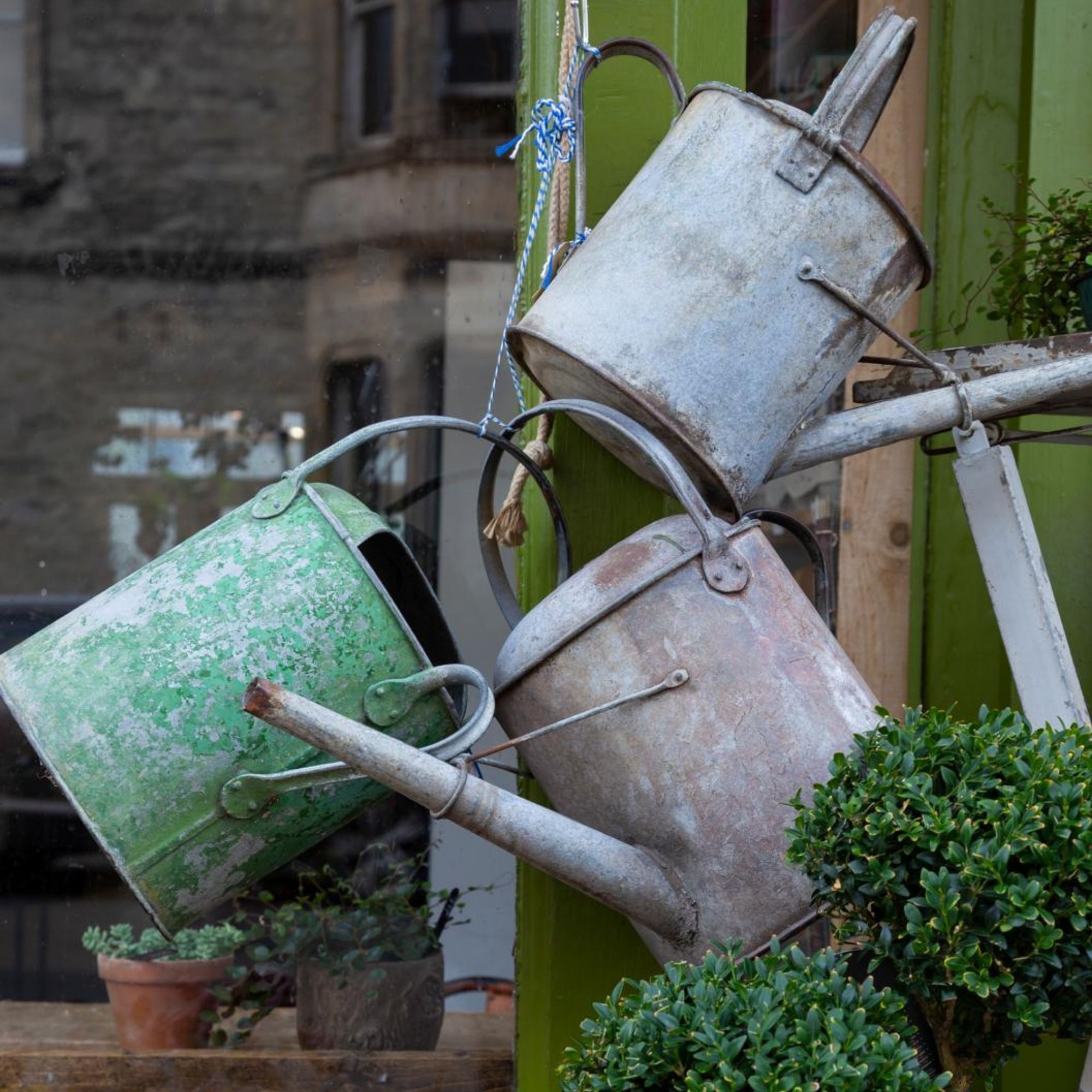
It should go without saying, really, that you will need to adjust your watering schedule to account for the extra rainfall (to be honest, you should have dropped your watering schedule right down for autumn as it is).
'Use the finger test to check soil moisture before watering, and water only when the top inch of soil feels dry,' advises Morris.
Remember: it is always easier to save an underwatered plant than it is an overwatered one.
10. Get staking
Heavy rainfall can cause some larger plants to get a little wobbly, so it's time to make like Buffy the Vampire Slayer and get staking.
'Use stakes or plant supports to prop them up and help them regain their upright position,' says Morris.
Ensuring a stable environment for your waterlogged plants is the best way to ensure optimal growth. And, while you're at it, remove any damaged leaves at the same time.
11. Replenish your lawn

Rain can wash away the vital nutrients that your plants (particularly your picture-perfect lawn) needs to thrive.
'Fertilise the lawn using a feed that is rich in phosphorus,' says Matt Kent, landscape manager at Toolstation.
'This will help to promote root growth as well as replace the nutrients in the ground.'
He adds that 'it’s also important to remember not to mow a lawn after a period of extensive rain. It’s best to wait until spring when the warmer temperatures will cause the grass to begin growing again'.
12. Start deadheading
Whether you're looking to deadhead dahlias, roses, or hydrangeas, it's important to set to work now and start trimming away any spent or damaged flowers.
It's a good way to keep the bulk of your plant intact for next year. And don't forget to tick off all your big pruning jobs ahead of the winter frosts, too.
14. Think about the future
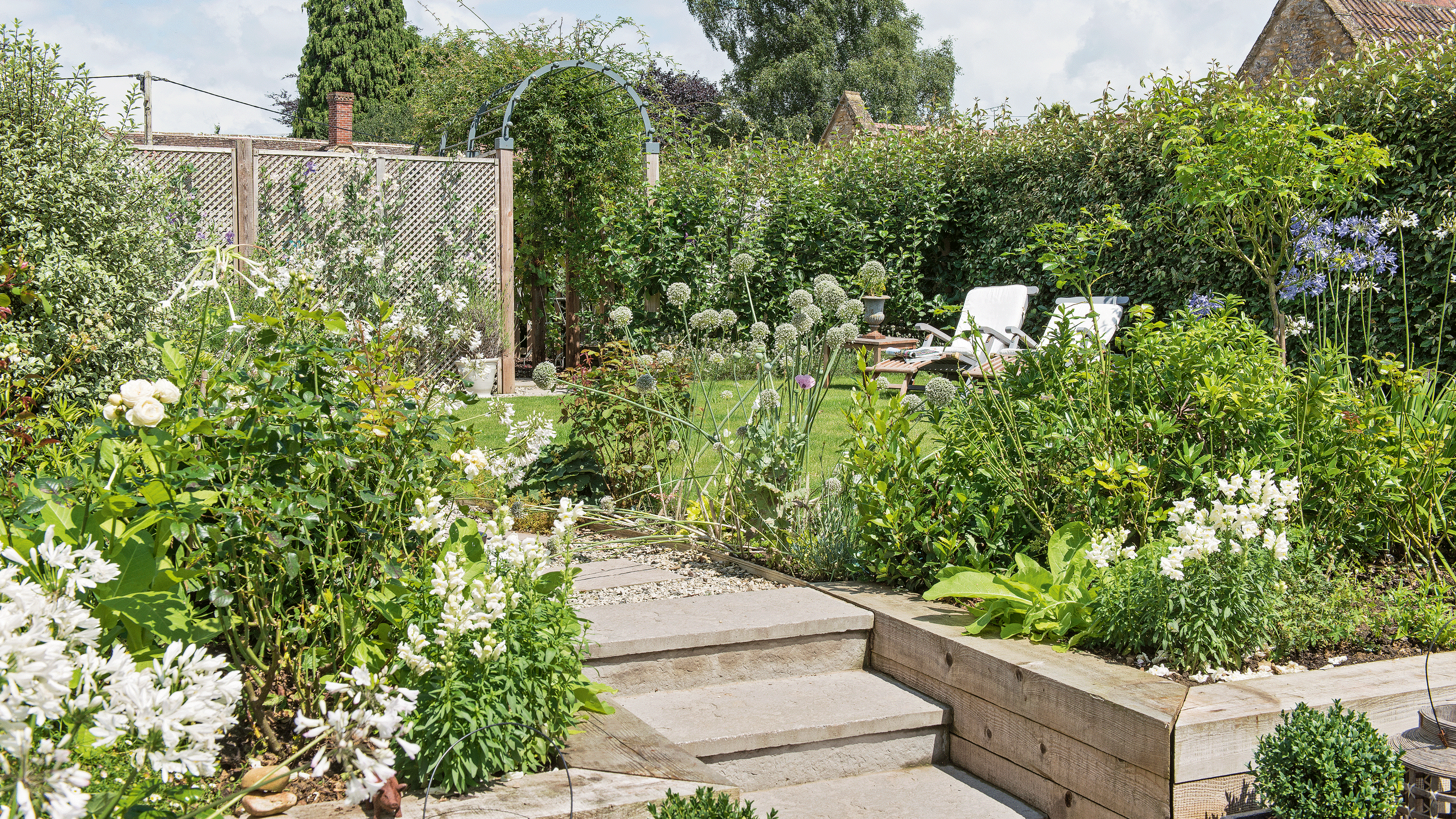
If your garden has suffered during Storm Ciaran, it's a good idea to think about how to save your garden from very heavy rain in the future.
'Consider planting more resilient and water-tolerant varieties in your garden to withstand future heavy rainfalls better,' suggests Morris, 'and rotate crops to reduce the risk of diseases that may develop due to excess moisture.'
Chris, meanwhile, suggests investing in some raised beds ahead of the next big planting season.
'Raised garden beds – or even a spot of hugelkultur – is a good option if your garden is prone to excess surface water,' he says.
A rock bed, too, is another thing to consider, as it will enhance your landscape and protect natural waterways. Winner!
15. Consider a French drain
'If flooding is a regular issue, you may want to consider installing a French drain,' says Matt, who is full of ideas when it comes to how to save your garden from very heavy rain.
'This is a gravel-filled ditch with a perforated underground pipe to drain away the water.'
He adds that it’s best to check with your local planning authority before starting any digging, though.
16. And keep an eye on the sky

The most important thing you need to start doing for your garden, obviously, is keeping one wary eye on the clouds overhead. Or, y'know, the weather app on your phone.
'Stay informed about upcoming weather conditions and plan your garden management accordingly,' warns Morris. 'And be prepared to take preventive measures if heavy rain is predicted.'
Hmm. When you consider the fact that we're already using the daily forecast to help us adhere to the 3-hour rule for gardeners, that shouldn't be too much of a problem...
FAQs:
What do I do if my garden is too wet?
If your garden is really wet, it's important to improve the drainage. One a short-term basis, you can clear gutters, create gentle slopes to drive water away from your plants, aerate the soil, and add mulch or well-rotted organic matter to regulate soil moisture levels.
On a long-term basis, you might also consider incorporating raised beds or a rock garden – and work to reduce hard surfaces wherever you can, too.
Is heavy rain bad for potted plants?
While natural rainwater is an excellent resource for gardeners, too much of it can cause problems for your potted plants: if they sit in heavy rainwater, they can develop root rot and other fungal diseases, not to mention have all of their important nutrients washed away. Take some time to pop them under shelter when heavy rainfall is scheduled, then, and make use of pot feet to improve drainage, too.
What do I do if my garden is too wet?
If your garden is too wet after very heavy rain, Matt advises you do the following three things:
Remove any debris as soon as possible
Aerate the soil with small holes
Fertilise the soil with lawn feed
It's also a good idea to work on improving drainage wherever and whenever possible.
Now that you know how to save your garden from very heavy rain, it's time to don a rain jacket and get out there... if you dare brave the wind and the wet of Storm Ciaran, that is.
Good luck...

Kayleigh Dray became Ideal Home’s Acting Content Editor in the spring of 2023, and is very excited to get to work. She joins the team after a decade-long career working as a journalist and editor across a number of leading lifestyle brands, both in-house and as a freelancer.
-
 Should your front door colour match your hallway? Interior experts reveal 3 reasons why it should (and 3 reasons it shouldn't)
Should your front door colour match your hallway? Interior experts reveal 3 reasons why it should (and 3 reasons it shouldn't)Are you team matching or contrasting?
By Ellis Cochrane
-
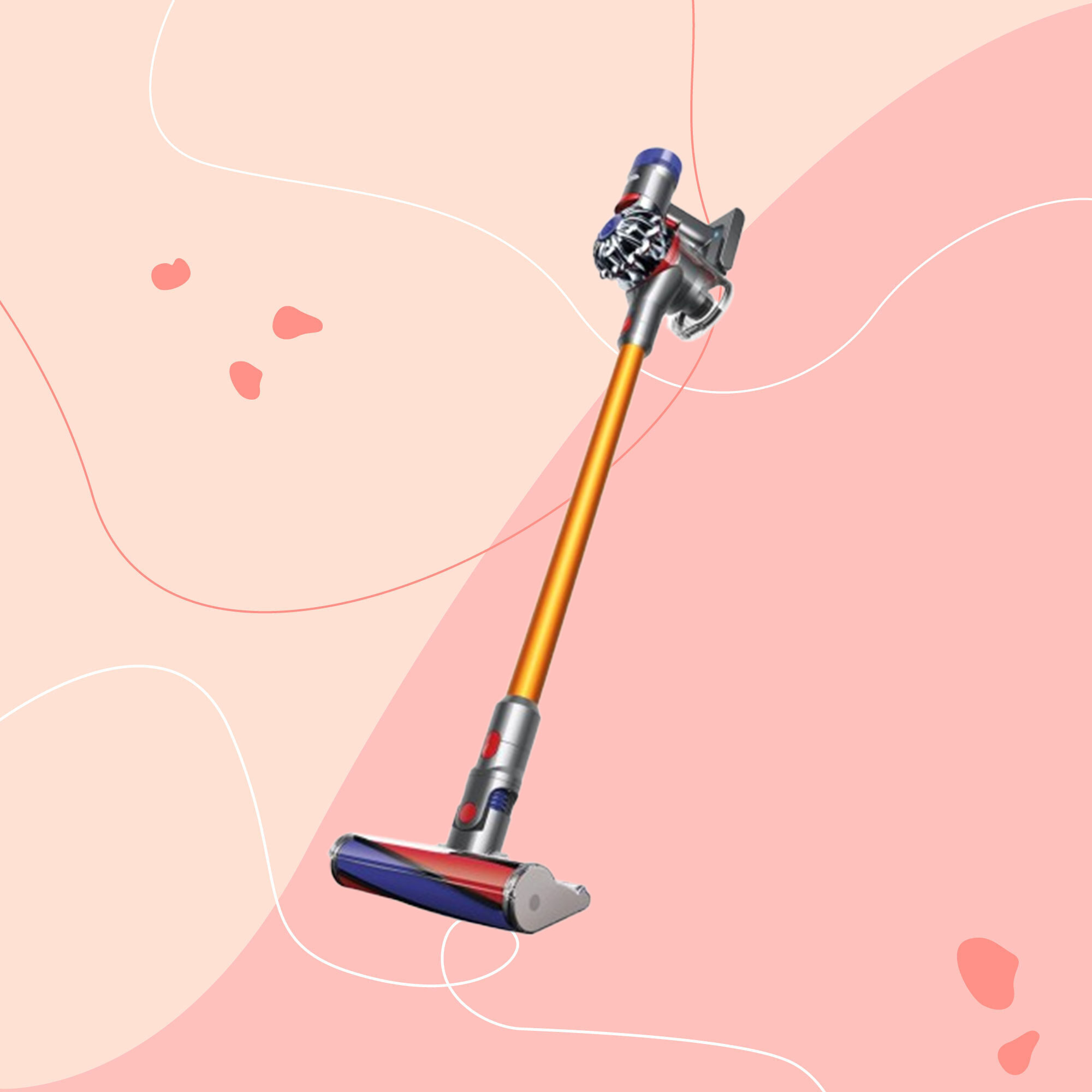 This £200 limited-time discount makes this Dyson vacuum cheaper than I’ve ever seen it - run don’t walk to Argos for this bargain
This £200 limited-time discount makes this Dyson vacuum cheaper than I’ve ever seen it - run don’t walk to Argos for this bargainIt's the most affordable Dyson on the market right now
By Lauren Bradbury
-
 Martin and Shirlie Kemp’s pastel flower beds has given their Victorian renovation a romantic look - how you can get the look
Martin and Shirlie Kemp’s pastel flower beds has given their Victorian renovation a romantic look - how you can get the lookTheir pastel garden is the cottage garden inspo you've been looking for
By Kezia Reynolds